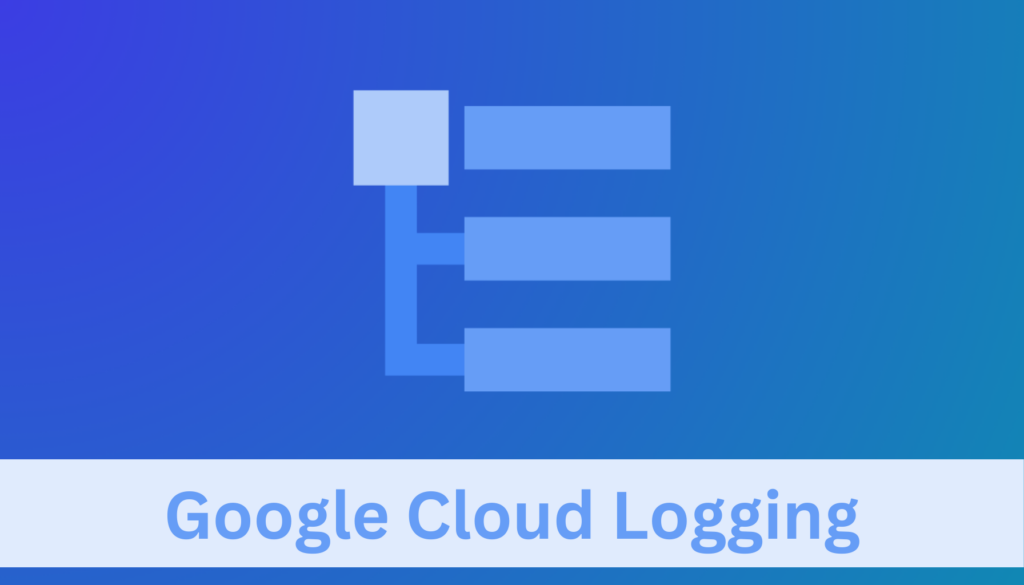What is Google Cloud Logging?
Google Cloud Logging, a versatile and powerful logging service, plays a crucial role in modern cloud computing. This service is designed to collect, analyze, and store logs from various applications and services running on GCP. It’s a key component for developers and system administrators to monitor the health and performance of their applications in real time.
One of the primary benefits of Google Cloud Logging is its ability to simplify log management across diverse GCP services, enhancing operational efficiency. By offering real-time log analysis and the ability to integrate with other GCP tools, it ensures a more streamlined and comprehensive approach to log management. Whether you’re debugging applications or tracking system activity, Google Cloud Logging provides a robust and user-friendly platform to make these tasks more manageable.
Discovering the Key Features of Google Cloud Logging
Google Cloud Logging provides various features that allow you to get insight into log data. These features include:
1. Real-Time Log Management
Google Cloud Logging offers real-time log management, allowing you to instantly collect, view, and analyze logs from your GCP resources. This feature is essential for timely detection and resolution of issues, providing an immediate insight into your application’s performance and behavior. Real-time log management helps you react quickly to any operational problems, ensuring minimal downtime and improved service reliability.
2. Advanced Query Capabilities
With advanced query capabilities, Cloud Logging empowers you to efficiently sift through vast amounts of log data. You can perform complex searches, use filters, and set up custom queries to pinpoint specific information. This feature is particularly useful for diagnosing problems, understanding user behavior, and ensuring compliance with various standards and regulations.
3. Log-Based Metrics
Cloud Logging allows you to create custom metrics from log data. These log-based metrics enable you to track specific events or conditions within your logs, offering a tailored monitoring solution. You can set up alerts based on these metrics, helping you stay informed about critical events or unusual activity in your system.
4. Integration with GCP Services
Seamless integration with other GCP services enhances the utility of Cloud Logging. You can easily connect Cloud Logging with services like BigQuery, Cloud Storage, and Pub/Sub for extended log data analysis, storage, and processing. This integration provides a cohesive and efficient logging solution across your entire GCP environment.
5. Exporting Logs
Cloud Logging facilitates the exporting of logs to various destinations such as Cloud Storage, BigQuery, and Pub/Sub. This feature allows for long-term storage, detailed analysis, and further processing of log data outside the Cloud Logging environment. It’s particularly useful for compliance, audit, and archival purposes.
6. Monitoring and Analysis Tools
Incorporated within Cloud Logging are comprehensive monitoring and analysis tools. These tools provide graphical representations of your log data, making it easier to understand patterns, trends, and anomalies. They are instrumental in simplifying the log analysis process, enhancing your ability to make informed decisions based on your log data.
Google Cloud Logging Pricing Overview
Basic Pricing Structure
Google Cloud Logging adopts a usage-based pricing structure, where charges are incurred based on the amount of log data processed, stored, and analyzed. This approach provides flexibility, allowing you to pay only for what you use. The pricing varies depending on factors like log volume, the chosen data retention period, and any additional features or integrations used.
Pricing Components
- Data Storage: Fees based on the volume of log data stored in Cloud Logging.
- Data retention: Charges for retaining data; billed monthly.
- Log Analysis: Charges for using advanced analysis and query features.
- Data Export: Costs for exporting log data to other GCP services like BigQuery or Cloud Storage.
What is included in Google Cloud Logging Free Tier?
Google Cloud Logging includes a generous free tier, which is particularly beneficial for small-scale users or those in the early stages of development. The free tier includes:
- Free Log Storage: First 50 GiB free storage per project per month.
- Free Log Retention: Free log retention for default log retention period.
This pricing overview gives you a clear understanding of how Google Cloud Logging could fit into your budget, helping you make informed decisions based on your specific logging needs and usage patterns.
How to Optimize Costs in Google Cloud Logging?
Google Cloud Logging offers various ways to optimize costs while ensuring efficient log management. It’s crucial to understand and implement these strategies to maintain a balance between performance and expenditure.
1. Efficient Log Storage Management
Effective log storage management is key to controlling costs. By carefully configuring your log retention policies, you can ensure that logs are stored only as long as necessary. Reducing the retention period for less critical logs can lead to significant cost savings.
2. Utilizing Log-Based Metrics
Instead of storing all logs, leverage log-based metrics to monitor key events or conditions. This approach reduces the volume of logs that need to be stored and analyzed, directly impacting the cost.
3. Effective Use of Exporting Logs
Exporting logs to cost-effective storage solutions like Cloud Storage can be a smart move. By exporting older or less critical logs, you can take advantage of lower storage costs while still keeping your logs accessible for long-term analysis or compliance purposes.
4. Leveraging Free Tier Benefits
Make the most of the free tier offered by Google Cloud Logging. By staying within the limits of the free tier for log entries and storage, you can manage many basic logging needs without incurring additional costs.
5. Strategic Integration with Other GCP Services
Integrate Cloud Logging with other GCP services to optimize cost and performance. For instance, integrating with BigQuery for deep log analysis can be more cost-effective than using Cloud Logging’s native capabilities for large-scale log analysis.
6. Advanced Query Optimization
Optimize your log queries to reduce the load on the system and the associated costs. Writing efficient queries that quickly return the needed information can decrease the processing time and resources used, leading to cost savings.
By implementing these strategies, you can effectively manage your Google Cloud Logging costs, ensuring that you’re getting the most out of the service without overspending.
Conclusion
Google Cloud Logging is a comprehensive logging solution offering real-time management, advanced querying, and seamless integration with other GCP services. Understanding its pricing structure and utilizing cost optimization strategies are crucial for effective and economical use. For optimal implementation of Google Cloud Logging in your projects, consulting with professionals is recommended to tailor the service to your specific needs and budget.
Ready to Optimize Your Google Cloud Logging Usage?
[Reach out for specialized guidance] to ensure your setup is both cost-effective and high-performing.

